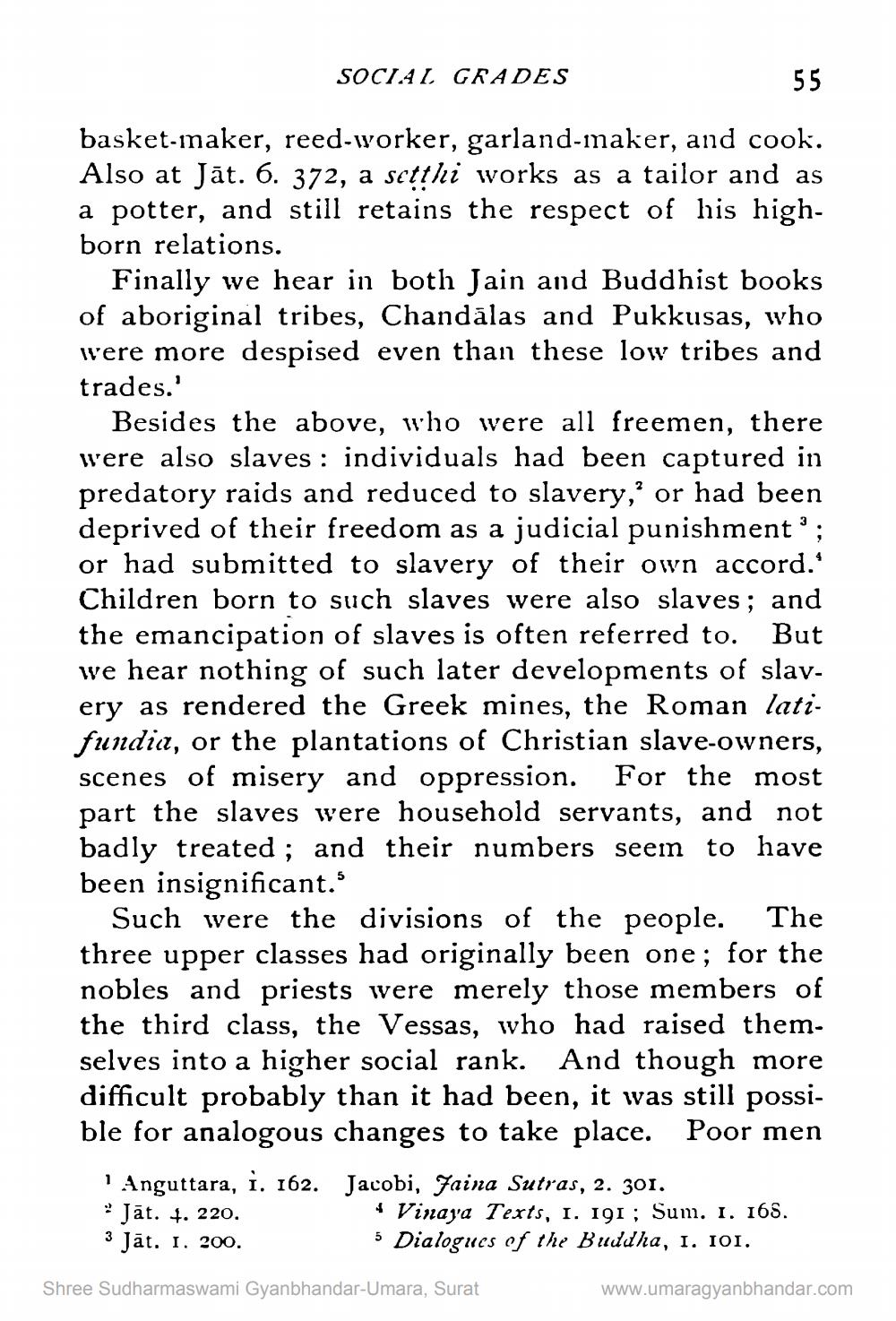________________
55
basket-maker, reed-worker, garland-maker, and cook. Also at Jāt. 6. 372, a seṭṭhi works as a tailor and as a potter, and still retains the respect of his highborn relations.
SOCIAL GRADES
Finally we hear in both Jain and Buddhist books of aboriginal tribes, Chandalas and Pukkusas, who were more despised even than these low tribes and trades.'
Besides the above, who were all freemen, there were also slaves: individuals had been captured in predatory raids and reduced to slavery, or had been deprived of their freedom as a judicial punishment'; or had submitted to slavery of their own accord.' Children born to such slaves were also slaves; and the emancipation of slaves is often referred to. But we hear nothing of such later developments of slavery as rendered the Greek mines, the Roman latifundia, or the plantations of Christian slave-owners, scenes of misery and oppression. For the most part the slaves were household servants, and not badly treated; and their numbers seem to have been insignificant."
Such were the divisions of the people. The three upper classes had originally been one; for the nobles and priests were merely those members of the third class, the Vessas, who had raised themselves into a higher social rank. And though more difficult probably than it had been, it was still possible for analogous changes to take place. Poor men Jacobi, Jaina Sutras, 2. 301.
Vinaya Texts, 1. 191; Sum. 1. 168. 5 Dialogues of the Buddha, I. IOI.
Anguttara, i. 162.
2 Jāt. 4. 220. 3 Jāt. 1. 200.
Shree Sudharmaswami Gyanbhandar-Umara, Surat
www.umaragyanbhandar.com




